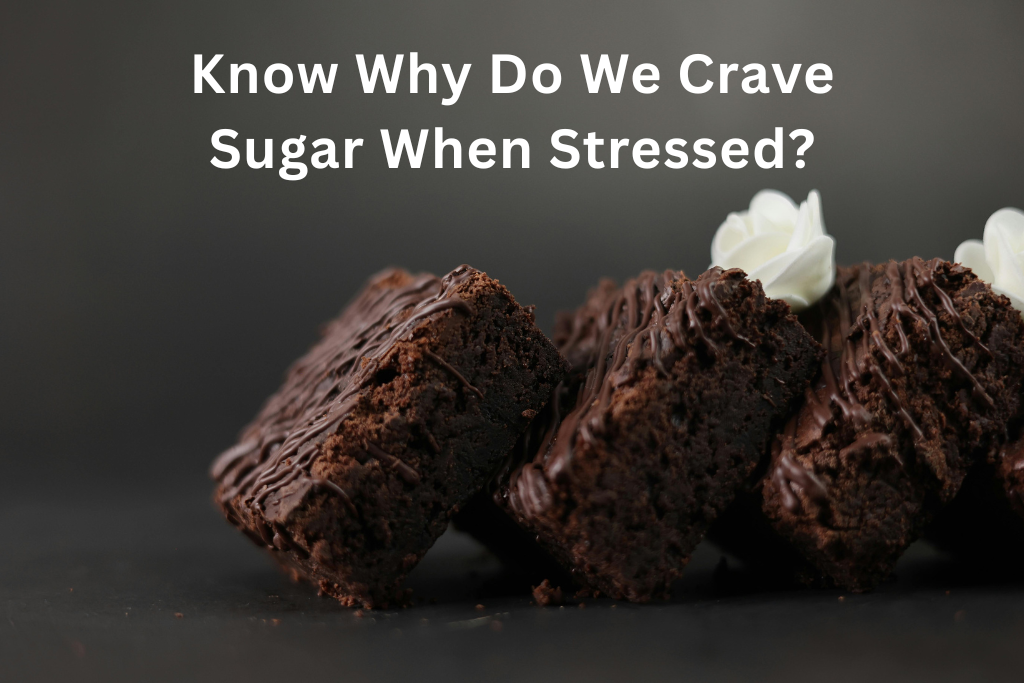How to Stop Emotional Eating (Especially Sugar Cravings)

If you’ve ever grabbed a cookie after a tough day or discovered that you wanted chocolate late at night, you’re in good company. Emotional eating, particularly the desire for sugar, is a frequent reaction to stress, anxiety, or boredom. However, if you indulge these cravings too frequently, it can result in a sugar addiction, weight gain, and a difficult-to-break cycle.
This guide will help you grasp the reasons behind your sugar cravings, differentiate between emotional and genuine hunger, and provide practical strategies for managing emotional eating, including healthy options that don’t contain added sugar.
What Is Emotional Eating?
Emotional eating refers to the practice of using food, usually high in sugar, salt, or fat, to alleviate negative feelings such as stress, sadness, or frustration. In contrast to physical hunger, which develops gradually and can be satisfied with any type of food, emotional hunger strikes suddenly and often centers on a particular craving typically for sugar.
Emotional Hunger vs. Real Hunger: Emotional hunger arises suddenly, feels urgent, connected to mood fluctuations, and results in feelings of guilt afterward. While real hunger develops gradually, accumulates over time, can be satisfied with any food, lacks feelings of guilt.
Why Do I Crave Sugar When Stressed?
It’s not only psychological if you desire sugar when under stress. Stress raises levels of cortisol, a hormone that can heighten your craving for fast energy sources such as sugary foods. These foods trigger a temporary release of dopamine (the “feel-good” hormone), leading your brain to link sugar with relief.
Regrettably, this establishes a pattern of sugar binge eating that fails to address the emotional issue, rather just hide it.
How to Stop Emotional Eating and Sugar Cravings
1. Identify Your Triggers
Monitor your sugar cravings, what times of day do they occur, after which events, or in reaction to what feelings? Frequent causes of sugar cravings consist of:
-
Work stress
-
Relationship tension
-
Boredom or loneliness
-
Hormonal changes
Knowing your triggers helps you build a strategy around them.
2. Practice Mindful Eating
Practicing mindful eating assists in interrupting the binge cycle that occurs on auto-pilot. Reduce your pace, avoid distractions while eating, and take note of your feelings before and after eating. This aids in recognizing emotional hunger prior to taking action based on it.
3. Stock Sugar-Free Snacks for Cravings
Swap processed sugar with sugar-free snacks for cravings, such as:
-
Fresh fruits
-
Greek yogurt with cinnamon
-
Stevia-sweetened beverages or treats (like Sweetmate's zero-sugar electrolytes)
-
Dark chocolate (70% or higher)
-
Roasted nuts or trail mix
4. Break Sugar Addiction Gradually
Quitting abruptly can lead to withdrawal symptoms. Gradually reduce your intake of products with added sugar. Swap out sugary beverages for ones made with stevia. Consider a sugar detox for those who eat emotionally: A period of clean eating lasting 7 to 10 days can help reset your taste buds and lessen cravings.
5. Use Healthy Emotional Options
Instead of turning to food, Try:
-
Journaling your thoughts
-
Going for a walk
-
Talking to a friend
-
Meditation or deep breathing
-
Engaging in a hobby
These stress eating solutions can reduce your emotional load without sugar.
Linkage between Mental Health and Sugar
Mental health and sugar are closely connected. Consuming a lot of sugar can result in mood swings, anxiety, and tiredness, all of which can exacerbate emotional eating habits. Cutting back on sugar can contribute to stabilizing your mood, energy levels, and overall mental health.
Frequently Asked Questions
Q: How can I stop sugar cravings at night?
A: Eat balanced meals during the day, avoid caffeine late, and try a sugar-free herbal tea with stevia in the evening.
Q: What are good sugar-free snacks for cravings?
A: Greek yogurt, almonds, dark chocolate, and electrolyte drinks sweetened with stevia are great options.
Q: Can emotional eating be a sign of deeper mental health issues?
A: Yes. If emotional eating feels out of control, talking to a therapist can help you uncover underlying issues.


